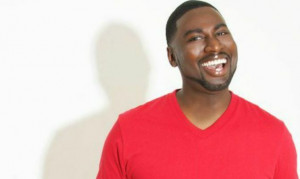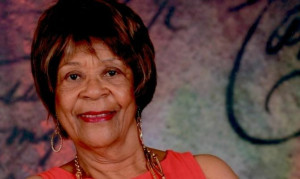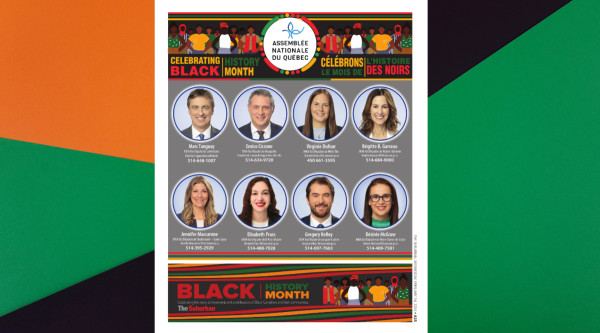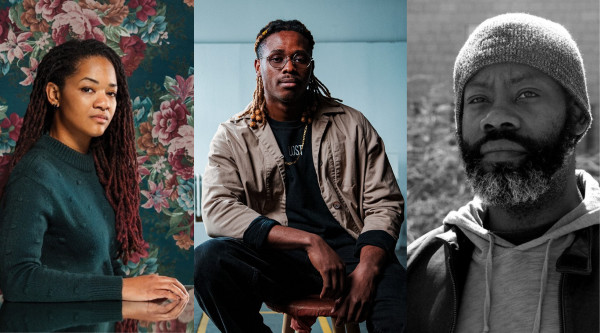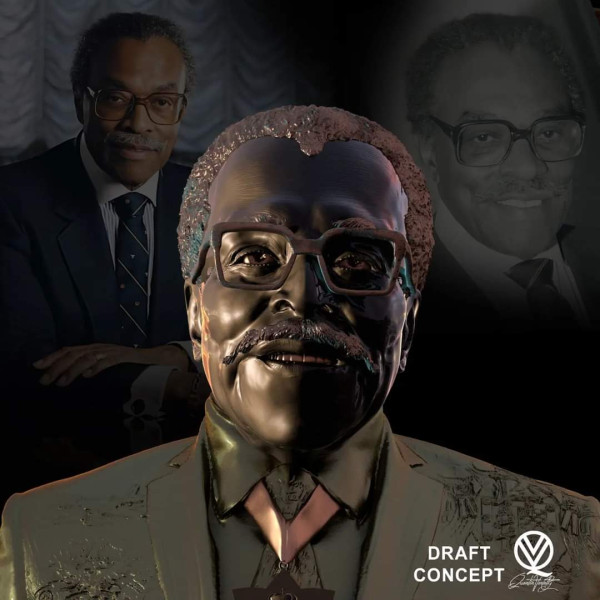Akande was born in Toronto in 1937, to parents who were teachers but immigrated to Canada from the Caribbean at a time when blacks weren't allowed to teach. Zanana followed her parents' footsteps and became a teacher --and later a principal-- before she got involved in politics. She joined what is now the New Democratic Party and ran to represent the St. Andrew-St. Patrick riding in Toronto during the 1990 provincial election. Akande won the seat and was named the Minister of Community and Social Services by Bob Rae, making her the first black woman to be elected to the Legislative Assembly of Ontario and the first black woman to serve as a cabinet minister in Canada.
Akande has received numerous honours for her community work such as the African Canadian Achievement Award for Education, the Award of Distinction from the Congress of Black Women and the Constance E. Hamilton award in 2004 for her work addressing equity issues.
Your parents were both teachers and came to Canada at a time when black people were not allowed to teach, did that at all inspire you to become a teacher?
Actually, I hadn't intended on becoming a teacher, I always wanted to go to law school but we had no money; there's no fancy way to put it. I chose teacher's college thinking teachers get off work at 4:30, I can take evening and summer courses to graduate on time, teach for a few years then go to law school. But I found out during practicum that I quite loved teaching and I was good at it so I succumbed to the seduction of teaching.
And what was the transition like going from a teacher to a principal to running in the 1990 election?
Well It was a long time, I was asked to run by the NDP before 1990 and I was asked to run by another party as well but I was reluctant. I was reluctant the year I ran too, sometimes I wonder if I would have run at all if the election hadn't been called in summer because I was a principal. But I decided I'd do it, I'd served on a committee and helped other people in elections. When they showed me the platform I said these are things I can speak to and I think are important and decided I could do it.
Between each of those three roles what are some common values they share?
I think the betterment of people and the improvement of life's situations. I think all three focus on building citizenship, more people knowing more things and understanding processes, it affects the economy and good decision making; hopefully.
Photo: Lawrence Kerr
 When you were elected you became the first black female to be elected as an MPP in Ontario, did that have any significance to you?
When you were elected you became the first black female to be elected as an MPP in Ontario, did that have any significance to you?
No, if I'm being truthful, well not for me. It was important for many other people and important to have achieved it but for me there were many black women who I knew personally who could've done a great job and the fact that we had to wait until 1990, well not waited just not able to be achieved, aggravated me. There had been others in the past who had been elected who, with all due respect, didn't have the ability to do the job and didn't have to struggle to get it. And women have our own history with fighting for the right to stand in office and run but once we gained that right many women went home satisfied with the possibility and didn't run. That aggravated me but I had to accept it because the fact was mentioned a lot. I'm just disappointed it took until 1990.
Speaking of which, one of the big stories in Canadian politics last year was Justin Trudeau naming a neutral-balanced Cabinet, what kind of effect do you think it will have going forward when it comes to perceptions of women in the political sphere?
I hope it'll change. I think the biggest hurdle has been crossed and not just with Trudeau. The NDP had the largest number of female representatives in it's Cabinet. I think it's time, we've had several female premiers, governor generals, people are more accustomed to seeing women's names on the ballot and less hesitant about it.
On another note, there have been criticisms about the lack of black people involved not only in Trudeau's cabinet but in Canadian politics as a whole. What do you think can be done to encourage more black Canadians to get involved in politics and represent their communities?
I think black people need to be in a position to run. One of the things I emphasize is that the candidate needs to feel financially and economically okay with stepping away from their job temporarily and run for those positions. I think there are more of them now but you also have to be aware and interested. You have to see it as a place of business and a place to make change. You have to want to contribute to that change or else you'll say "why would I do this?" First of all you have to deal with the attention and criticisms. And there's a tendency to lose your way and forget some of the ideals you had, to change because it's comfortable to change. There are some people who have said to me "I would never do what you do" and I understand that but I always say you might see it differently from the inside so you have to be able to do that. But some people can't so they shy away from it and that's how they keep you in, you'll have to forgive the expression, "your place." I realized this and knew I wouldn't be there long.
You've been involved with several community services including president of the Habourfront Centre, The Canadian Alliance For Black Educators and Toronto Child Abuse Centre, why has serving your community been important to you?
I think that everyone has to give something to the community and you give according to the time and ability you have. I think it's important to bring communities together. And I also think it's important to show people we can do these things (laughs) hopefully there's less people to show than before because there are some people who seem to believe we have difficulty working with communities that are not our own. There are lots of us doing work in other communities, like Harbourfront and you do the work not just to show you can but also because you care about the goals of that community and want to be a part of it. I think it does us no good at all if we only present ourselves as members of the black community and work only in that community. We are also part of a wider community but that is a message that has to be said and also demonstrated. I think we have to get our kids out of their little environments and let them take advantage of all the thing there are to learn and experience different things and feel like they're a part of them, I think it's important.
Switching focus a little, Black History Month is coming up, what are some of the best ways to celebrate black history and black culture?
I know there are many events that happen and I think it's important we transfer aspects of our history into these events. Our history classes aren't about us. There are things I'm still learning today and I think there needs to be a vehicle like the arts or speeches to teach us and everybody else about our history.
For you personally, what have you taken away from learning about black history?
If I had to sum it up in one word I'd say pride. There's that saying "and still we rise" and it's phenomenal to me how a people who have been lied about, downgraded, historically omitted and abused have fought so many disadvantages but have accomplished so much. At every attempt to hold us down we thrive. So what I feel is pride.
Of all your accomplishments and things that you've been a part of, what are you most proud of?
In 1992 there was a riot downtown involving a group of black youth protesting inequality and injustice in an orderly fashion. But they were provoked into violence by another group of youth. For some people this showed the way black youth were treated and viewed in the media. It also showed people that they were very angry. Out of this came the jobsOntario Youth program, which I was the head of. The program opened up centres that offered summer employment because that's one of the things the youth were angry about. And we found that it wasn't just black youth, it was poor youth that were unable to find summer employment and if it they did it was at an extremely basic level. So the premier’s office talked to all the big businesses they knew and we opened up additional youth employment centres, many of them in poorer communities. Now we had all these youth working in big corporations that they normally wouldn't get unless they knew someone. And it was so beneficial. I've had people stop me and tell me they got their careers started through jobsOntario youth. So if there's something I'm proud of my involvement in, that is it because it did what it was supposed to do; expose kids of all backgrounds to jobs they otherwise would not have been able to access.
I'm also very pleased about some of the things I've done within the schools, which sometimes meant speaking for and to issues that were unpopular. Doing so prevents you from getting as far as you're qualified to get but it allows you to feel that you're not selfishly looking at your own progress and career but speaking for those who don't have a voice.
Zanana is now happily retired, enjoying her free time with her grandchildren.
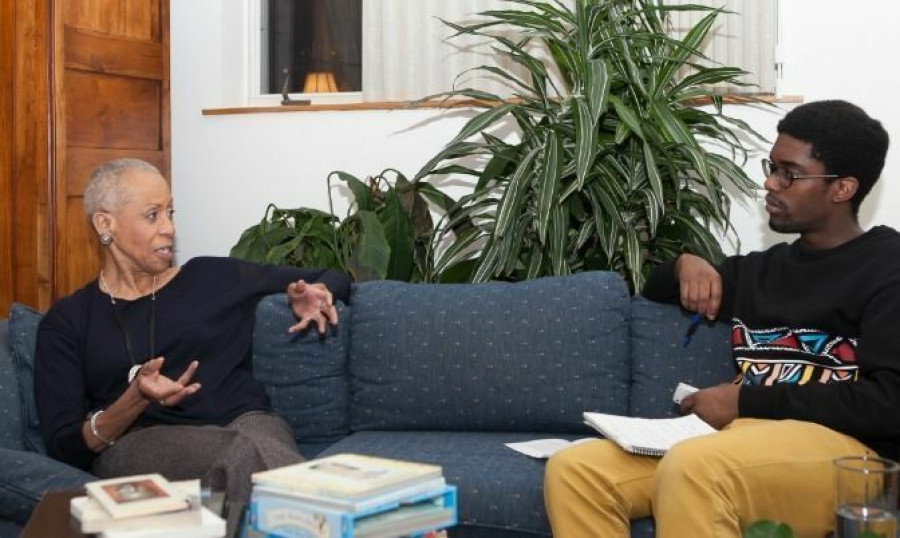
 By
By 



